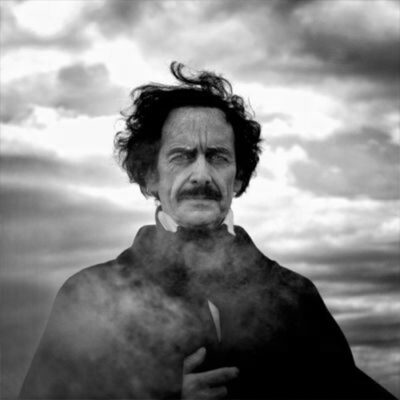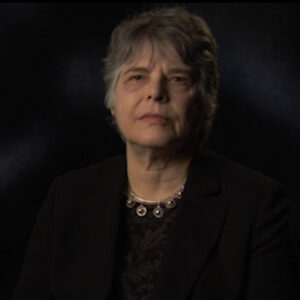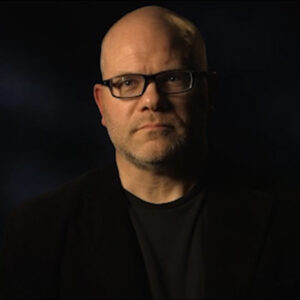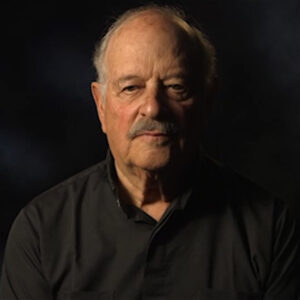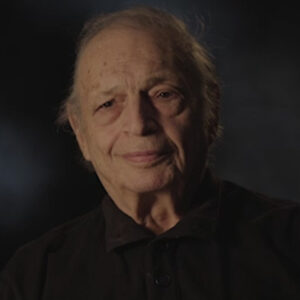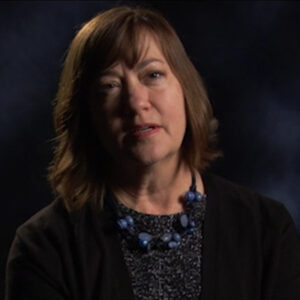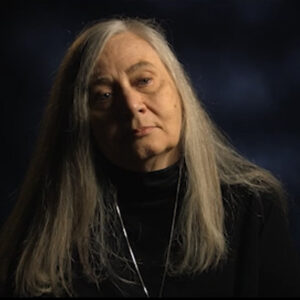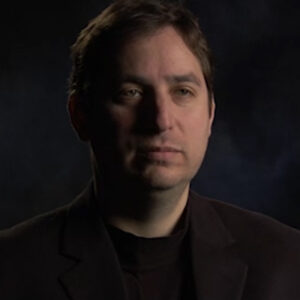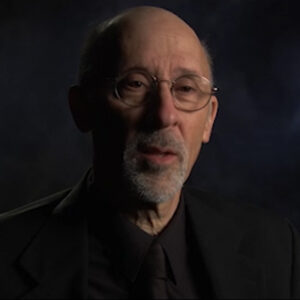Speaker Can you describe the scene when Eliza Po is ill in Richmond and nearing death, describe that that little ad that ran in the paper, and who were these people who are coming to help her? And why did they why did they feel strongly about helping her?
Speaker It was December of 1811 and Alysa Po had been abandoned by her husband. She was left with three children for which she had the sole care she could no longer perform on stage. Her acting career was over. Her acting troupe had tried to help her out, holding some benefits in her honor. And finally they placed down the paper the appeal to the humane heart, saying that Eliza Po needs you in her time of need, perhaps for the last time and society lady started coming to care for. And this was really unusual because at the time proper society did not associate with actresses. Actresses were the lowest of the low. The theater was considered the Den of Harlot’s. But here is Mrs. Allen, who’s from a planter family, and Mrs. Mackenzie, and they were caring for Mrs. Poe and bringing her meals and there was a local history at the time, Sammy Mortdecai. So this was a most unusual tradition. He hoped it would continue this custom of bringing meals to these poor actresses. And when Mrs. Poe finally died, she just 24 years old. Edgar was just too. And all the children that split up and sent to different families. And Mrs. Allen, one of the people had been caring for Mrs. Poe, agreed to take in Edgar and Mrs. Mackenzie agreed to take in Rosalie Poe and his older brother, William Henry. Leonard Poe went to live with the Poe relatives in Baltimore.
Speaker And so there’s the young Edgar orphaned growing up in the Allen household, what were the Allens like and why did they take them in an hour where John and Francis may be different and how they thought about Edgar?
Speaker Well, when the Allens took in, Edgar in 1811, he was just two months short of his third birthday. And Mr. Allen was a tobacco exporter. He would export tobacco and use the money to buy British product products and sell them here in America. And it was pretty well off. But the merchant class was not the highest level of society. Mr Allen’s wife, Frances Allen, was from a planter family, the highest level of society. And she’s the one who seemed to really want Edgar. She’d been married. No children really want to have a child to take care of. She had been orphaned herself so she could sympathize with Edgar’s plight. And she agreed to give this little orphan a home, even though Mr. Allen seemed to oppose it at first. He did eventually follow his wife’s lead and he agreed to take in Edgar because although his wife couldn’t have any children, Mr. Allen had no trouble having children. He was already having children, a woman around town or paying them to go through school, get them books and clothes he probably didn’t want, have to take care of somebody else who wasn’t even his child. But he did offer to take in Edgar. And at first Åhléns were astonished by how precocious Edgar was, how he could read and write in an early age. And it said that Mrs. Allen would set it up on her table at dinner parties and have him recite poetry to a guest. And she must have thought it was just a perfect little angel, she dressed him up the little velvet suit and cape, and he always just worshipped his foster mother, Frances Allen. He just thought the world of her. But Mr. Allen saw a different side of Edgar, and it said that Edgar early on was known as a prankster and a troublemaker. It said that I of Mr. Allen’s parties, all the ladies were sitting around the table and the gentlemen were holding out the chairs for the ladies. And just as one particularly large lady was about to sit down in her chair, young Edgar offered to pull it out for her just before she sat down, he just yanked it out from under. She went splat right on the floor. And that’s just another time that Poe got in trouble going to growing up. Another time, it said that Mr. Allen was having a card party and the gentlemen are sitting around the table and his business partners daughter ran to the room screaming. She was being chased by a ghost and the ghost chased her around the table until one of the gentlemen stopped this little ghost and yanked off the sheet. There’s a little five year old Edgar Allen Poe. So Poe is constantly getting in trouble growing up. Apparently, one of his friends said that he was a leader among boys who taught me to do many of forbidden thing for which I was punished and said that once Poe took him on someone else’s property at night and they shot their pet birds. So whereas Mrs. Allen saw the goodness in a. how he excelled in athletics and academics, Mr. Allen, he wrote of poems being sullen, disrespectful, said he didn’t show a spark of gratitude for all the charity I’ve shown them all these years. So you really had opposite reactions seeing Mrs. Allen and Mr. Allen towards Edgar.
Speaker That’s great. Thank you. I really captured it, you know, I forgot I wanted to ask you about the gift that Alysa gave to Edgar, the painting of Boston and what it said. And then she also left him a likeness of herself. Yes. Could you describe those two things? What the hell that Edgar had left of us, of his mother?
Speaker Well, just before Eliza Poe died.
Speaker Welcome to the office. I’m sorry. Sorry. We have to start. Oh, my God. I can’t turn it off. Sorry.
Speaker Is it OK? Yes, OK. Right. We’re still rolling, right? Yes. I’m sorry. Go ahead.
Speaker Just before Eliza Poe died, she gave her only possessions to her children. She gave a jewelry box to her daughter Rosalie and to her son Edgar. She gave him a miniature portrait of herself, the only picture by which he remembered his mother. And he said to have worn this miniature for the rest of his life. She also gave him a watercolor that she had done of Boston Harbor and on the back roads that that was the city where she’d found her most devoted friends. And I think it’s no accident that later in life, Edgar returned to Boston. The city of his birth, the place where his mother found her most devoted admirers, and that’s where he chose to publish his first book.
Speaker So when when the Allens return from England, I it was about 18, 15, 18, 16, I’m not sure they returned to Richmond. Edgar is now a young teenager, I think 11 or 12 or so, 13 maybe. What’s he like then? What kind of boy is he?
Speaker In 1811 or messed that one up in 1820, the Allens returned from England, Edgar was just 11 years old and Allen’s business had failed. He was trying to establish a branch of the Ellis Nauen firm in England. It just didn’t work. So after five years, Mr Allen came back to Richmond and had to live for several months with his business partner before he able to afford to buy a home is known for his family. And at that time, Hobe became a very close friend of the Ellis family. Mr Allen’s business partners and Mr Ellis had a huge garden just across the street from his house, a big walled garden full of plants that he was cultivating, including roses. And one local said you could smell the roses from a block away and how grown up used to spend time in that garden. And he wrote about it in his poetry. And it said that his poem to One in Paradise even describes it when he writes about the Green Isle in the sea, a fountain and a shrine, all reef of fairy fruits and flowers and all the flowers are mine. And later on used to take his girlfriends up to the garden. And once he got back from England, he seemed to be well advanced beyond the other students and school. He can only speak several languages fluently, translate the classics in Greek and Latin, and he was distinguished and a scholar at the local academies in Berks and Clarkes Academy. And they said he a special talent for French, but he was noticeable for his imagination. He said his imagination just outshined everyone else’s. At the same time, he took a liking to athletics. He represented his academy in boxing and track and set the school’s broad jamaine record. And to this day, he holds the record swimming against the currents of the Change River. He was 15 years old and one of his fellow students betting he couldn’t swim down the river for a couple of miles. So he took that bet and he ended up swimming six miles. The other students who have followed him try to keep up, had to drop out along the way and they had to get into a rowboat, but kept swimming and ended up in Chesterfield County. And this made newspapers impose lifetime. And he used to brag that Lord Byron swim in the Hellespont had it easy because he didn’t have to fight against the danger of recurrence.
Speaker What do you think that swim was about? What was he trying to prove to his friends or to Richmond? What was it?
Speaker Well, how growing up was probably trying to prove himself. Because even though he was living with the aliens, he never took on Alan as a last name. He was never really legally adopted by the aliens, never really part of the Elon’s family. And people knew that he was a son of players, that his mother was an actress, and that was a mark of shame. And he said that anyway.
Speaker But, yeah, we’re going to watch it because this is great and that’s why we got great speed.
Speaker So, yeah, we’ll start over again.
Speaker What was he trying to prove with that swimming wheel and swam against the James River tidal currents? He was probably feeling need to prove himself, because even though he lived the Allens, a prosperous local couple, well-known, well established, he never took on Allen is the last name he always used as a middle name because he wasn’t legally adopted. He wasn’t really part of the Allen family. He was just there. Ward and Mr. Allen had agreed to make sure that posed properly educated, but didn’t really make any other promises after that. So people around town knew that Poe was a son of players and it said that they declined his leadership, they looked down upon him because he was an actress’s son and an actress back then was not much more than a prostitute. So police felt this need to prove himself to outdo everyone else, whether it at athletics or academics. But he seemed to have a little bit of a chip on his shoulder. And I can see him acting that out when he was swimming in the James River. And another possible motivation might have been that he’d heard of Lord Byron’s swimming feats.
Speaker And Polo, growing up, discovered the works of Lord Byron and took him on as a model for his poetry and for his lifestyle. Even, they say, is look was modeled after Biard early on, and Mr Allen used to complain about PO using Byron as a model in his life. But Polo to Byron Byron and he wanted to swim farther than Byron had swum and he wanted to write better poetry. But for him, Byron was a rock star, the guy who’s mad, bad and dangerous to know. And that’s what initially inspired some opposed poetry like Tamburlaine.
Speaker That’s great. Thank you. Really good.
Speaker Let’s see, I’ve heard a lot so Jane Stannard, who was she? What did she do after and what did her death do to Edgar?
Speaker Well, when Paul was 14 years old, he went home with his friend, Robert Stanford, one of his fellow schoolboys a few years younger than he was. And in walked Jane Stith, Craig Stanford, the woman called the first purely ideal love of my soul. And it said that he was speechless at the sight of her. She was so beautiful. She had pale skin, long black hair, and according to his mother in law, the sight of her, he almost fainted dead at her feet. But there’s a problem. He’s still 14. She was his best friend’s mother, so she was in her 30s and married. It wouldn’t have really worked out. But poets like unrequited love. And he took her on as chervil new mother figure in his life. And he showed her his poetry. And it said that at times when Mr. Allen was arguing with Poe and telling me not to waste his time reading this Lord Byron garbage, not to waste his time writing poetry that she gave him that encouragement that he needed. So he found refuge with her, but has happened too many times in Poe’s life. She died early when he was just 15 years old, and he was devastated by the loss. One of his friends said that Poe growing up was fairly cheerful and got along well with the other boys, except for when Jane Sander died. And it said that he went to her cemetery at night and kept a vigil at her grave.
Speaker Even after he is married, he used to take his wife up to Shockoe Hill Cemetery and show her the grave of his beloved Helen, the subject of his poem to Helen, the one that starts out Helen butis to me like those nice parks of your which over the perfume see the weary, wayward wonder of words, his own native shore and all the people dedicated a lot of his poems to different women for to Eliza is dedicated at least three different women who change the title to it once. He kept dedicating to Helen to Jane’s standards, she was at first purely idea love of his soul and the first great heartbreak.
Speaker And can you talk a little about that, Jane Stanard was buried in Shockoe Hill Cemetery.
Speaker Rather elaborate funerary yard on her grave. And then Fannie Allen ended up there and I’m sure a pretty elaborate grave, too. Meanwhile, Poe’s mother, Eliza, was where where was she buried? And what about that contrast? How might he have felt about that?
Speaker Well, while Paul is growing up, his mother was resting in an unmarked grave at St. John’s Church that was the oldest churchyard in Richmond and the front half the cemetery is a public burial ground is naturally the place that she would bury people even if they weren’t members of the church. But there was a problem. She was an actress and respectable people didn’t want to have an actress buried with them at the cemetery. So there was a little bit of controversy and eventually the churchyard was talked into burying her there. So she is in the cemetery. Just way against the cemetery wall is an unmarked grave 116 years after her death. But it’s said that one of the Allen family servants would take it. You’re up to see the spot where she was buried. Meanwhile, his foster mother, Frances Allen, was buried at Shockoe Hill Cemetery and they started burying people there at 1822 after St. John’s churchyard was pretty much full.
Speaker And this is where Chief Justice John Marshall was buried, or Revolutionary War heroes like Peter Franscisco were buried. And, of course, the Allens were buried. They had a plot there. So Mrs. Allen has a very nice monument. Mr. Allen has a slightly nicer monument to his second wife, has an even nicer monument because she outlived him and just a few yards down the street. Frances, just a few hours, just a few yards down from Frances Allen’s grave is James Standards grave, a nice monument, more elaborate than the Allans monuments, and that’s the place the pope visited while he was growing up. And it said that that was one of his favorite place to take a Sunday afternoon walk with his wife, Virginia.
Speaker And he did spend time in there because it said that while his foster mother, Frances, was dying from tuberculosis, he was stationed at Fort Monroe in Virginia. He heard of her illness. He heard that her dying wish was to see him one last time, to see her son one last time. That’s because of paperwork and red tape. He made it back a day late for her funeral. It said that walking to see her grave and seeing how close it was to Frances, but to Jane standards grave just left him devastated.
Speaker He say that again.
Speaker It said that when he returned to Richmond a day late for her funeral, when he went to Shockoe Hill Cemetery and saw how close her grave was to that of James standards, he was just devastated and just wept right in that spot. And these were posed three mothers growing up and all gone by the time he was 20. And if his mother in that unmarked grave. He once wrote that even though people look down upon her and they didn’t accept her into proper society, he wrote that no girl was ever more proud of his earldom than I was to be sort of an actress, a woman of such talent and genius and beauty.
Speaker It’s great. Thank you, Chris.
Speaker It seems like this is exactly the kind of stuff we need to just make him an emotional reality, because what we’re trying to do.
Speaker How do you think? Well, you’ve sort of said this, but describe a little more how you pose a signal about the time he’s going off to the University of Virginia that he had reason to think he would inherit from the Allens. Right. And and what was that Richmond elite like? And how did he feel about it and what were his expectations?
Speaker Well, growing up, by the time Paul was 13 years old, he was already writing poetry mainly to school girls around town. And he would use his sister, who lived the local family, the McKenzies, to sneak notes, different girls in her girl’s school and apparently girls were really flattered by this poetry he was sending them until they figured out just the same poem over and over again. But at age 13, he compiled enough of this love poetry that he wanted to volume published. And Mr. Allen at the time was still very proud of those accomplishments. And he showed this book of poetry to post headmaster. And the headmaster said, well, he only has a little bit too much of an ego. If you allow him to publish a book this early, you’ll never hear the end of it. So he would have to wait until he published that book of poetry until he’s 18 years old. So just another five years. But Poe had decided he wanted to be a poet, but at the time that wasn’t a job. Writing really wasn’t a job in America yet. He was the first major American to try to make his living just off his writing. So naturally, he expected that he would have family money. Mr. Allen had inherited a fortune worth about three quarters of a million dollars. He had a huge house in Richmond, a plantation in Goochland County. He had slaves and property. So Poe naturally thought that he would inherited Allen’s money and then he would be able to devote his life to poetry. But it didn’t work out that way by the time I was 15, we see in John Allen’s letters that he’s complaining that Polus Ill-Tempered disrespectful. He doesn’t show a spark of gratitude for the charity after all these years is just not one good thing about that boy. One of his letters, she refers to him as that devil actress’s son. So definitely they’re quarrelling, Poe must have been a difficult teenager, but probably still thought that he had a right to inherit that fortune, he’d lived with Mr. Allen since he was two. It was only father that he even remembered. But then it was time for him to go off to college and the University of Virginia had just been founded HOA’s and the only second class to attend it was a new innovative college, is the most expensive school in the country have been found by none other than Thomas Jefferson. And when you got there, Jefferson had an innovative model, instead of having a church in the middle of the university, he would have a library there. And the students, the professors would live together, they take classes in the same area and it was a close knit academic community, and Jefferson believed that if you trusted these students to govern themselves. That you’d have an ideal learning environment. But he didn’t really factor in what would happen when you let a bunch of 17 year old boys from very wealthy families who didn’t have a lot of discipline all over themselves, turns a huge party school that’s known for its drinking, gambling, fighting and pose letters home. He describes how one student hit another in the head of the rocks, another try to take a shot at him with a pistol. Another letter, he says it right outside his dorm room. Two students are fighting and one started biting. The other one just beat him over and over again on the arm from the shoulder all the way down to the elbow. At the time, one student horsewhipped another for cheating at cards, says a wild, unruly place. Eventually, the sheriff had to be called in from Charlottesville to break up all the fight, and 50 students ran off into the woods and hid rather than face. Discipline is waiting for the sheriff to leave and came back out again. But while Poe was there, he was never disciplined. So he always stayed out of trouble and he did very well in his classes. He was one of the top French students, but he was out of money. Mr. Allen, one of the wealthiest men in Virginia, with a fortune, his disposal. Only sent there with a hundred and ten dollars to cover 350 dollars of expenses. Now, Pony needed at least 150 up front for room and board. So from the day he got there, Powys in debt and started borrowing money and couldn’t pay off the money he borrowed. So he started gambling to raise extra money. It was about 2000 dollars in debt after the first nine months. So when he left college, it was because he really couldn’t afford to stay and Mr. Alan. Really refused to help him, he could only afford to take ancient and modern languages. He was required take an arithmetic class, but he just couldn’t afford to take the class. He couldn’t afford a French textbook. So he wrote to Mr Allen asking for a French book. And Mr. Allen sent him Northman textbook, which he knew Purna had no use for. So it looks like Mr. Allen really set him up to fail so he’d return in disgrace. And Poe did. And he was humiliated after that one term of college. And Mr. Allen set him up with an unpaid position in his firm, probably in his counting rooms. And before poll after college, he became engaged to a local girl, Elmira Royster. And by this time, Paul was 16 years old, Elmira was 15, her father was a wealthy businessman. And when he heard that his daughter was seeing this actress’s son, Edgar Poe. He probably didn’t think to call you that and discouraged the union, Sopo Dalmar used to sneak away to Charles Elissa’s garden on Franklin Street, where they could be together and they became secretly engaged. They made a pact to get married as soon as he graduated college could take care of himself. But just didn’t work out that way after nine months at college, Poe returned home. It was the Christmas holiday and he went to El House and felt she was throwing a party and he wasn’t invited. It’s her engagement party to another man. And once again, he’s devastated his college career is over, he’s quarrelling with John Allen and eventually he ran away from home at the age of 18 and he wrote to Mr Allen the day after that he wanted to go off somewhere in this world wide world where he would be treated, not as you have treated me. So he decided the age of 18, he was going to make his mark in the world. He was going to be a poet and a letter he wrote shortly after that, he said, I know I’m a poet because no one who worships be the way I do couldn’t be a poet. And that same age of 18, he published his first book, Tamburlaine, about a warlord who’s got off and conquer the world just like Paul wanted to do. But this Tamerlane returns home to find out that his wife, ADA, has died in his absence. So now that power and glory mean anything without ADA, and that might be a reflection of Poe’s broken engagement with Elmira Royster. He also included a short poem called Song about a woman on her wedding day who’s marching down the aisle. But she’s filled with shame because she knows she’s marrying the wrong man. So she did go wrong. And what really happened? But the real reason that she broke off the engagement was that while poems were at school and he was sending her love letters, her father intercepted the letters to her so that she would think poet forgot about her and she married somebody else.
Speaker You. I was just about to ask you to tell that part of it. Yeah. Did that all come?
Speaker Yeah. Oh, my story. Good. I’m on the edge of my seat over here. You know, it’s really, really good.
Speaker Gosh, well, we just covered a whole lot. So so growing up in Richmond, growing up in a family that was obviously slave owning family. What do you think those attitudes about race and about slavery were?
Speaker Well, while Paul is growing up in Richmond, he lived only a few miles. So well, Paul was growing up in Richmond. He lived only a few blocks from one of the largest slave markets in the country. And at the time, the tobacco industry had really taken its toll on the soil. So the plantations of Virginia didn’t need as many slaves as they had before. And they were selling a lot of these slaves to the plantations in the Deep South for the cotton plantations. So Richmond became a center of the slave market and would have seen that while he is grown up and also at the time, about 1800, there’s a slave named Gabriel. Who decides to rise up and with some of his fellow slaves, overthrow the plantation owners around Richmond, the James River? And the plot would have succeeded if it hadn’t been for bad weather that prevented him from succeeding. But while polls go up, the white community in Richmond was on a state of alert. And there was an armory in town that not only was prepared to defend against the British, but also it was on the lookout for slave revolts and there were laws passed preventing slaves from being able to read and write anything to keep them from assembling. If they went to church, they had to have a white pastor in that church. And enrich of the time that 50 percent of the population was African-American and about a third of them were free. So there was a free population living in Rich at the time. And Po did have contact with some of these, there was a fiddler who said to have played music for some of the parties that he had with his friends growing up, but he also grew up would have had slaves in the Allen household. And there was one who would have taken care of him while he was growing up who told him ghost stories. And there’s all sorts of accounts of how poet listen to the Allen slave’s ghost stories at night and how that might have inspired some of his later horror stories or some of his poetry like Spirits of the Dead. There’s a story about how he was traveling in a carriage with his foster uncle past a cemetery, and he just leaped out of the cemetery and started running. And his foster uncle asked him why he was running. And he said that one of the slaves told him that the spirits in the cemetery would rise up to take little children down into the grave with them. So Poe lived in this environment, and I’m sure he responded to this react to this. There are slave characters and some of his stories, like the Goldbug, which actually has a freed slave. And this freed slave has returned to take care of his master. He’s now in charge of his master, Lagrand. And also, there’s a story, Hot Frog, and this is one of those late horror stories published 1849, and it’s about a court jester who’s been taken from a distant land, enslaved and forced to be a gesture in the king’s court. And he rises up and takes revenge on the king in his court when the story. This court jester seems to be the sympathetic character we start to sympathize with the slave in this case. And also oppose working at the Southern Literary Messenger. There is a prevalent notion in the South that slaves enjoyed being enslaved, that. They wouldn’t enjoy being free and there was a review published in The Messenger while Paul was editor, it was a review of two books defending the institution of slavery and is known to have edited some of these and taken out some of the more inflammatory comments, whether that was because he didn’t believe in these comments or maybe it was because he wanted the magazine to sell in the north and usually he tried to stay out of politics. So sometimes we have to look to these instances in his life and try to glean what information we can. But he didn’t make a lot of overt statements on the subject. Sorry, just say that again. But he didn’t make a lot of overt statements on the subject.
Speaker That’s great. Thank you. So when John Allen dies and Poe realizes he’s not named in the will, what do you think it made him feel? What was said of that?
Speaker I need to change tapes.
Speaker So the question is, when John Allen dies, then it’s really kind of the final decision on Poe’s future. So what do you think he felt?
Speaker Well, Paul, growing up was always trying to prove himself to Allen, Mr. Allen considered himself a self-made man. He came to the states as a teenager and he took on a job with his wealthy uncle and eventually established his own export business. Now, Mr. Allen might have considered himself a self-made man, considered himself to be a successful businessman, but the same time he wasn’t quite as good at business as he thought he was. His attempts to establish a branch of his firm in England failed miserably. A few years later, the Ellis Allen firm folded. And Mr. Allen wouldn’t have survived without a bailout from his wealthy uncle, and not long after that, in 1825, Allen’s wealthy uncle died and left him a fortune. So Allan really had been depend upon the charity of others, he wasn’t quite the great businessman he thought he was. And maybe maybe thought he could have a bailout and he’d grown up in the Allen household since he was two, these were the only parents he’d ever really known. He considered himself part of the family, even if Mr. Allen kept reminding him that he only lived there out of charity, could be cut off at any point without a cent. But after Paul went to West Point, Mr. Allen helped him secure recommendations that got him in to West Point, Mr. Allen very quickly remarried. His second wife didn’t want have anything to do with Edgar. And their relationship never really recovered. Who wrote some things about Alan that Alan didn’t approve of when he was trying to leave the Army to get into West Point? He hired a substitute, takes place and serve out the rest of his term for him, a fellow named Bully Graves’. But he never paid the substitute, he said that Mr. Allen will pay you, and eventually Graves’ came to power and wrote him and asked him where his money was. And Paul wrote back that Mr. Allen is not rated sober. He probably just got drunk and forgot all about it. Unfortunately, this letter found its way back to Alan because they found the letter in John Allen’s files. And this insult was the last blow time and again, poet Alan Korrell, time and again, Poe came to Allen asking for money, asking for support. And time and again, Poe is trying to show that he was industrious, that he was thrifty. He would point out exactly how he was going to spend each dollar. He estimated how much he would take him to survive each month. He try to do things like enlisting at West Point that would show Allen that he was serious. But Allen still thought of him as that rebellious, reckless teenager who’d run away from home. And even though they briefly reconciled it, Frances Allen’s death, their relationship never really recovered. And in 1834, Poet published three books of poetry. They didn’t sell. He wasn’t making a living as a poet. He hadn’t yet lived his dream of being the American birhan.
Speaker And he turned to writing short stories, the magazines. He’d even won a literary contest in Baltimore. And he decides to return home that he heard that John Allen was sick. So Paul returned to Richmond and went to the Allen mansion on Main Street, and Mr. Allen’s second wife wouldn’t leave, wouldn’t even let him into the house. She didn’t recognize him. She never met it. Sopo forced his way past her, just wanting to see John Allen one last time before his death. And when he got up to Alan’s chamber, Alan just shook his cane at him and said, get out, go away, I never want to see you again. And that was the last they heard of each other. By the time Paul returned to Richmond in 1835 to work at the Southern Literary Messenger, Mr. Allen was dead. He had left pulao the will. He had left the boy he’d raised since the age of two out of his will, even though he included two illegitimate children he’d never even seen. He writes in his will that a lady told them they’re his, so they deserve something. But his own foster saw his own foster son. Edgar Poe didn’t deserve anything. So people must have felt rejected, he must have felt that the family he’d known and loved had shut him out. By this point, he knew that there was going to be a bailout, that Mr. Allen was going to be helping him at all, that he was going to have to survive on his writing and he was going to have to become the first major American writer to survive solely off of his writing.
Speaker Great. Thank you.
Speaker So what do you think it felt like for her to return to Richmond to work for the Seven Literary Messenger? Was it a triumphant return, tentative or was he how would he have felt?
Speaker When Paul returned to Richmond to work at the Southern Literary Messenger, he might have thought that this was a time that he could really establish himself and make his name. His efforts of poetry had not succeeded quite as he would have liked. His three volumes of poetry had sold very well. But as a magazine editor, he could become famous across the nation and he was able to reunite with a lot of his boyhood friends like Robert Craig Stanford, and he’s also able to make new friends. The McKinsey family who had reared Post Fosters read the McKinsey family who had raised his sister were still in town and post sisters, foster mother Jane Scott Mackenzie was like another mother to him and was taking care of him. So when Paul returned to Richmond, he didn’t have his contacts with the Allens anymore, but he did have a circle of friends who could support him. Now, ideally, he might have wanted a teaching job, he tried for different teaching positions, but obviously didn’t get the job, but magazine work was really going to shape the way people lived and wrote for the rest of his life. The Southern Liberty Messenger was a struggling publication, a circulation only about 500 copies a month. It was devoted to trying to inspire literature in the South. At the time, Richmond only had about 15000 people. Meanwhile, New York City had about half a million, Philadelphia at about a quarter of a million and seemed like all the best writers lived up north, like James Fenimore Cooper and Washington Irving. We didn’t have quite the strong Southern literary tradition, so the Southern Literary Messenger was designed to give a voice to Southern letters. And Poe decided to use that as his pulpit and champion the cause of Southern literature and really challenged the great writers up north. He said that James Fenimore Cooper couldn’t write, didn’t understand plots, that Washington Irving was most overrated right in America. He pointed out puffery. And the northern literary critics who pointed out the literary clicks and how they are helping each other. His first book review in the magazine, The Sudden the Messenger, is a review book called Confessions of a Poet. He begins a review by saying, the most remarkable aspect to this production is the bad paper on which is printed. And he finishes up by Bizonal to shoot himself. And Paul thought he was hilarious. Apparently, the readers thought that was just hilarious, that he was challenging the great writers.
Speaker But he also made a lot of enemies among his fellow writers at the same time, the circulation of the magazine increased seven times in the first year, became the most popular magazine in the South by the time he moved up to New York City. People already knew who he was. He was Edgar Apio, the editor of the Southern Literary Messenger. Years later, he would refer to him self as Edgar Poe, former editor of the Southern Literary Messenger, because that’s really how he made his name as his really fierce literary critic who is really going to challenge American writers in American readers to hold them, hold themselves up and hold American literature up to a higher standard that could really compete on the world stage. No longer with American literature be dependent upon the British model. Now would be something original and innovative that would be a leader on the world stage.
Speaker All right. Thank you. That’s very, very good. Thank you. Read our script.
Speaker You know, the script says Marriage to Virginia, who marries this 13 year old first cousin? What do you think people in Richmond thought? What do you think of it? How how weird was it or how not so weird was it?
Speaker Well, it’s 1835 Poe’s work in the Southern Literary Messenger. At the time, he said he was depressed and he wrote to one of his friends in Baltimore that he was depressed. But what was really scary about it was he didn’t know why he was depressed. About this time, he read that his aunt, Maria Klym, his biological father sister, had fallen on hard times. Her mother had died, leaving her with no source of income to take care of herself and her daughter, Virginia, his first cousin. And one of those other cousins, Nelson Poe, had offered to take in Virginia. But Poe thought this meant he would never see her again, and he considered Nelson Poe most bitter enemy in the world. So Poe begged and pleaded for Virginia and Mariah to move to Richmond with him where he could marry Virginia. And this letter, he describes how his eyes are full of tears. And then he writes to my dear cousin, my little wifey, and she did come to Richmond Merrion, Virginia, came to Richmond and he married them, married Virginia. And their marriage bond still exists in the state archives. And it verifies that at the time he got married, he was 27. His wife was a full 21 years of age, but he was actually off by eight years. He was still 13. Now, in Virginia at the time, a girl of 12 could be married as long as she had her father’s consent. So it wasn’t a terribly unusual thing. It wasn’t absolutely unheard of. And there are cases of men whose second wives are about the same age as their daughters. So it was something that was fairly calm at the time. And also, people did marry their cousins. Often the cousins or the people you knew best in life and many times wealthy families wanted to keep the money in the family and would marry close relatives. But what was different, what bothered some of the family was that she was marrying somebody so poor, they probably would have hoped that she would have married a wealthier cousin. And the reason he stretched the truth on his marriage bonds was because his new bride’s father was dead and couldn’t sign the documents, Mariah Clem wouldn’t be able to sign the legal document at that time. So he had to say that she was 21 so she wouldn’t need permission to get married.
Speaker And people around town describe Virginia as being very cheerful and loving, very childlike, even when she was starting to get a little bit older. She would rush out into the street and embrace him when he got home from work.
Speaker They also described seeing Poe’s mother in law, Maria Klym, walking down the sidewalk to the farmer’s market to do the family shopping. And they said they were fairly happy family, they lived in a boarding house near the state capital with a great view of Thomas Jefferson’s Virginia Capitol building.
Speaker And no matter how poor Poe was, he made sure his wife had tutors and music instructors. And he loved to hear her sing and play the piano. And he would play the flute along with her and the Mother-In-Law he used to call her Muddy. She would sing along and they have little concerts together at night while he’s writing stories about burying your wife in the basement or pulling out her teeth.
Speaker So for what it was, it was a reasonably normal, happy home life. Until she got older and Virginia started showing signs of tuberculosis. And that just devastated me, never really recovered from that. They said that one night she was singing the piano and she started coughing up blood, he’d already seen his mother, his brother, his foster mother die of this disease. Now he is watching you take his wife. But it didn’t just kill her right away. It took five whole years. Sometimes she would get so bad that it look like she’s about to die. He had prepare for her funeral, but then she get better and he thought she was cured. He thought the disease had left, but then she got worse again and she’d be invalid and he’d have to actually pick her up out of her bed and carry her to the dinner table to have dinner and then pick her up and carry her back.
Speaker But then she get better again and then she get worse and he said of those years, her illness, it felt like she was dying over and over again. He was preparing for her funeral over and over again. He was suffering from this anticipatory grief, grieving her even before she died. In those years, he once wrote, I became insane with long intervals of horrible sanity.
Speaker So the sanity, the real world, the reality of seeing what his wife was going through was far worse than the insanity of drinking to try to escape it, to try to just relieve his pain for a little while.
Speaker Thank you. Did you feel like that that felt like the family. Yeah, that Jan was saying before we really didn’t have anyone talking about what they were like as a family.
Speaker While Poe’s work in the Sun, the messenger, the magazine’s circulation increased dramatically. For the same time, his salary didn’t increase quite as much. The owner of the magazine was also starting to feel that Poe is taking too much control of the editorial work, and Poe constantly referred to himself as editor of the Sudden Literary Messenger. But in his boss, Mr. White’s letters, he frequently points out Mr. Poe is not the editor, he’s definitely not the editor. And Mr. White complained that Poe only read books to ridicule their authors. And he kept asking Pope, please tone down these reviews, you’re making too many enemies, you’re stirring up too much trouble. And Poe quarreled with Impose, even fired once while he was working there, Mr. White also complained of Poe’s irregular habits. It said that he might show up to work late, that before he got married and during his depression, he would drink too much and he’d miss a day of work. So these two didn’t always see eye to eye and Po’s vision, which he worked for for the rest of his life, was to start his own literary magazine and to do things his way. And if that meant challenging the biggest names in American literature, he was going to do that. He was going to stand up to everyone and back now back down from No one. And he was going to fight for the cause of an independent, innovative and original and imaginative American literature. And the best place to do that was the biggest city in America, New York City. So although Poe was on the verge of being fired, he was also about to quit. And I think by mutual consent, Poe left the Southern Literary Messenger and went to New York City. The problem is he left in 1837, the year of the panic of 1837, and banks were closing, magazines were shutting their doors. So police in New York for one year before he moved to Philadelphia, where he really made his mark at Grammes magazine at grammes in a year’s time, he increased the circulation from a very respectable at the time, 6000 copies a month to about 40000 a month made the first magazine America with a mass audience. So now Poe had a wide readership. When he did something, when he printed a news story, it made national news. That’s where he published the first detective story, the murders in the room morgue, which inspired a whole new literary genre. But at the time, he was making a salary of about 800 dollars a year while the owner, George Graham, was making 25000 dollars a year. So George Graham was very wealthy. People wanted a piece of that action. So he started to propose a new magazine called The Pen. And later he called the stylist’s and he worked up until his death to try to establish his own literary magazine to do things his way.
Speaker Great. Thank you. That was good, thanks.
Speaker So we’re going to jump ahead only because there are so many other people can talk about the Philadelphia years of stories and all that.
Speaker And I want to make you go through all that, though. I mean, so you could say I think we’ll just go back to when he goes back to Richmond. Are you doing OK? Want some water? Oh, I’m good. OK, so when he goes back to Richmond finally in 1849 with I mean, that’s a good Segway since you were just talking about the magazine, what takes him back to Richmond? How is he received now that he’s the author of The Raven, he’s got a national reputation. He’s famous or infamous depending.
Speaker But what’s it like when he finally returns to Richmond again after all those years when Poe return to Russia in 1848, he had just published his new book, Eureka. He thought this was the most important thing he’d ever publish. He wanted 50000 copies printed. His new theories about the origins and destiny of the universe would change the way we thought about science.
Speaker Instead of 50000 copies, the publisher only printed 500 and they only paid about fourteen dollars. The book didn’t sell well. It was ridiculed. It was scandalous. His good friend, Marie-Louise Shiu, was told by her spiritual adviser to cut off all contact immediately to save her soul. So when Paul came to Richmond, he was still stinging from that loss, but he hadn’t given up hope. He was still trying to find financial backers to start his own literary magazine, and he knew there were friends in Richmond who could help him with that. There was Edward Valentine, who is his foster uncle, and Poe wrote to him and sent him a prospectus for the new magazine, The Stylist’s. So in 1848, Poe returned to Richmond and the new editor of the Southern Literary Messenger was John Reuben Thompson, and he heard that Edgar Poe, the famous poet, was somewhere in the river district and rockets landing, reciting Eureka on top of a marble top table in a bar. So Thompson went to rockets landing, looking for Popat, but couldn’t locate him, so back at the Southern Literary Messenger office, Thompson sat down and in walks a man dressed in black who announces I am Edgar Poe. And they soon became friends, Mr. Thompson started publishing Poe’s essays, even though he thought the essays weren’t really worth publishing. He still had such a friendship with Poe, he decided to publish things like the rationale of verse. He knew that the general reader wouldn’t understand these things, but he thought that Poe’s genius was worthy of being supported. He also made contact with John Monicker Daniels, who is another editor of the Richmond Semi-weekly Examiner, and said that one day Poe showed up at Daniels office and point a pistol in his face and challenged him to do. But Daniels said, you’ll just sit down, we’ll have a drink. And after that they became collaborators and started selling poetry to his magazine. And that’s one of the more unbelievable stories in Poe’s life. So it’s usually pretty easy to dismiss some of these really outlandish stories. But one of those letters, he does refer to Daniels as that man I challenged last year. So we know that Poe actually did challenge him to a duel, even though it might not have been a serious challenge.
Speaker Poe also had heard that his old sweetheart, Elmira Royster, was now the wealthy widow Shelton, living in a house on Churchill. And it had been years since he’d seen her, the last contact they’d had was while POWs working at the Southern Literary Messenger. He and his new bride, Virginia, were attending a party, and Elmir and her husband, Alexander Shelton, showed up. And Elmira wrote about this in one of her letters. She said that seeing Poe with another woman was agonizing. And eventually she had to chase those those jealous thoughts from as if they were venomous reptile. And apparently had to be escorted out of the party by her husband, but by 1848, Elvira’s husband had died a few years earlier and Elmira had gone through the long process of mourning. There’s a long ritual, this in which you spent the entire first year mourning your husband. You dressed all in black the second year, year and a half mourning. So now Elmira is finally able to start accepting invitations from gentlemen callers. And apparently she was at home one morning and heard her servant arguing with someone at the front door.
Speaker And she walked to the front steps and saw there was Edgar Poe, he’d shown up unannounced, had left a calling card, so the servant refused to admit him into the house. So he was arguing with the servant. And Po looked up the stairs and said, Elmir, is that you? And she said, go away, I got to go to church. So polished left, but he started coming back. And the next summer, 1849, he returned to Richmond and really started courting Elmira seriously, by this time he was publishing articles regularly in the Southern Literary Messenger. He was contributing his series, the marginalia, and he had finally found a financial backer in Illinois who’s willing to help PokerStars own literary magazine, who also heard that he was getting positive reviews of his works in France. So things were starting to go his way, he said that he was never received with so much welcome and he really felt at home.
Speaker He visited old friends. He made new ones. His sister, her foster family were still living in Richmond and they welcomed him into their home. And that became a home base for him. His sisters, friends, Susan Archer Talley also frequently welcomed to her home, and he read poetry in her parlor. He complimented her grapes, and after he did that, she made sure that every morning he had some of her grapes at his hotel room. He was also invited to give a reading at the Exchange Hotel, the nicest hotel in town, and the reading was successful enough that he was invited back a month later in August of 1849 to give another reading.
Speaker And one of the people in attendance said that the reading closed with a performance of The Raven to Unbound applause by a gracious audience, and Poe must have been swallowing with pride.
Speaker This is a city that growing up had rejected and thought of him as a devil actress son. And now here he is, Edgar the Raven Poe. He’s not just the American Birhan. He is the Raven.
Speaker OK, if you could just the last year about what it would have meant to him, what it meant to him to come back and have this great reception. OK.
Speaker Well, when Poe returned to Richmond in 1849, he wasn’t just the American buyer, and now he was Edgar the Raven Poe, he was a household name. People would read the poem to each other on both sides of the Atlantic. Elizabeth Barrett Browning had written to Post saying that the Pullman created a sensation in England in a fit terror. And kids in America seeing him after his readings would fall down the street saying nevermore, nevermore, and he flap his arms like a big bird. Now, he was a celebrity. Now he’d shown everyone and he performed a sold out audiences in Lowell and Providence and New York City and Boston.
Speaker And finally, he was returning back to his hometown and he was a success, a celebrity, and was finally recognized as a poet, not just as a literary critic or a fiction writer, but as a major American poet. And he said that he was never received with so much warmth and enthusiasm, he performed at the largest hotel in town, the Exchange Hotel. And they enjoyed it so much, he was invited to perform the next month in August of 1849. He had still several friends in Richmond who greeted him and took him into their homes. His sister was still living here with her foster family and that became a home base.
Speaker His sister’s new friend, Susan Archer Talley, was living nearby and she used to welcome people into her house, he would give readings of the Raven and her parlor. He would discuss poetry, and she just adored him. He complimented her grapes once. So she made sure that every morning he had grapes at his hotel room when he woke up.
Speaker And he was able to visit people he hadn’t seen in years and on top of this, best of all.
Speaker His old sweetheart, Elmira Royster Shelton, finally agreed to marry him, she wrote to mother in law from his first marriage and said, I look forward to calling you mother and just expected to bring her down to Richmond, where she and Edgar would live in their house on Church Hill.
Speaker And Elmira might have been skeptical of Poe’s motives, but now she was convinced that he truly loved her. And Po’s reputation had preceded him. There were accounts in the newspapers that he was a drinker. And in fact, a former fiancee of his had called off their engagement because he refused to stop drinking for a while, enrichment Richmond, he joined the Sons of Temperance.
Speaker And pledged to abstain from drinking altogether, so during the last few months of his life, while he’s in Richmond, he had people in the group who made sure that he stayed true to his pledge and he was also very productive. He is working on his marginalia for the Southern Literary Messenger. He is working on articles. He had a new essay, the poetic principle that he was reading, that he’d finally found a financial backer so he could start his own literary magazine, the stylist’s.
Speaker He also heard that he was getting positive reviews of his works in France. So he was on top of the world the last night he visited Elmira Shelton, they must have been discussing the future and he was optimistic. He had no reason not to be optimistic. Everything was finally falling into place. But before they get married, he had a business trip to Philadelphia, he was to edit a volume of poetry, and then he was going to continue on to New York, pick up his aunt, Mariah Klym, and bring her down here for his wedding. He’d already bought Elmira an engagement ring. He bought himself a new suit. But Elmir said that he was very pale, he had a fever and a weak pulse, and she pleaded with him not to take the trip to Philadelphia, just stay here a few more days and recover. But Paul ignored her advice, but after he left her house. He visited his friend, Dr. John Carter. Carter said the same thing, that POWs very sick. We don’t know exactly what his illness was, but Carter advised him to stay a few more days recover and Persad and Carter’s office for at least an hour, playing with his sword cane. And when Poe left, he left his walking stick there and took the doctor’s sword cane with him instead. We don’t know exactly why he switched out canes, why he wanted to bring his sword cane with him. We know that he stepped over to Saddlers restaurant, maybe had some oysters while he was there, and then took off in the very early morning steamship to Baltimore, probably by way of Norfolk, would have taken about two days to get to Richmond, to Baltimore. And then we’ve taken him a couple of hours by train to get to Philadelphia. But he just disappeared for five days. When he was found, he was still in Baltimore semi-conscious. Just an ill fitting second and close look. Nothing like the kind of clothes he would have worn. He was asking who knew anybody in Baltimore? He had cousins like his old enemy, Nelson Poe, or his uncle Henry Herring. But he asked for a magazine editor named Joseph Snodgrass.
Speaker Snodgrass took Poe to Washington in College Hospital, where he spent his last four days delirious in and out of consciousness, talking to shadows in the wall, not making any sense when he asked if he had any friends who come visit him and cheer him up. He said, My friend, whoever take a pistol and blood, these wretched brains.
Speaker But his doctor had to wait for that. Yeah, sorry, that was great.
Speaker You are on a roll. When Paul was asked if he knew anybody in Baltimore who could care for him. He could have easily have asked for his cousin, Nelson Poe, or his Uncle Henry hearing, but he asked for one of his magazine editor friends who had some medical training, Joseph Snodgrass. And Snodgrass offered to take Poe to pose Uncle Henry Herring and Herring said, I don’t want to win, I don’t want him at my house. I don’t care what you do with him.
Speaker So POWA to Washington College Hospital. We spent the last four days on the care of John Moran.
Speaker And Moran wrote a very detailed letter about a month after Poe’s death and said that he was delirious in and out of consciousness, he didn’t appear to have been drinking, but he wasn’t quite sure what was wrong with Poe and said that poet ramble incoherently there, talked to shadows on the wall that was asked if he had any friends come and visit him and cheer him up. He said, my friend would be whoever take a pistol and blow these wretched brains. And then Poe kept saying, I have a wife back in Richmond to get back to my wife. At first, Moran thought will post talking about his wife, Virginia. She died a few years ago, but I think Poe was probably talking about Elmira Shelton, this lost love of his. He’d finally reunited with her. And he died 10 days for before he would have married her. She didn’t even find out that he was dead until she read about the newspapers. And he had a new poll that he intended to publish with his wedding announcements, local papers instead, that poem, Annabel Lee, first appeared at the end of his obituary.
Speaker And he used to tell Elmira that she was the true Annabell, the. And those lines, she was a child and I was a child in that kingdom by the sea might refer to their love back when they were young and how they were broken up by her father.
Speaker Her high born’s Kinman came and took her away from me, but he also apparently told other women they were the real Annabel Lee.
Speaker That’s good. Thank you.
Speaker So just one more thing and then we’ll do the museum part, the Griswold obituary. What was that and what was the damage it did?
Speaker Oh, Rufus W. Griswold was a magazine editor and anthologist, and he was the editor of the Poets and Poetry of America, the first major anthology of American poetry. We already had access to the great works of the English poets, but now we had a great American poetry anthology and Poe knew he wanted to be in this anthology. So he sent some of his poems. And Griswold included 45 of one poet’s poems, 20 of another poets, but only three of post poems. That was a big mistake. So while Poe maintained civility towards Griswold and some of his lectures, he openly ridiculed the poets and poets of America, especially some of Griswold’s friends. He complained that Griswold had just just.
Speaker He hadn’t had good judgment in some of these poems that he had included people just because they were his friends, because they were his cronies, that is all about who you knew, not the quality of your poetry.
Speaker And he’ll continue to ridicule Grizzle and some of his stories and one of his stories. He has a character who gets more stupid just by reading one of Griswold’s books. So after Poe died, Griswold decided to get his revenge and he wrote an obituary of Poe that was so libelous that he didn’t even sign his name to it. He signed it. Ludvig, he opens by saying word oppose death will startle many, but few will be grieved by it. He had few or no friends, and he goes on to betray pose a mad man, drunkard, womanizing opium addict who hated the world and the world hated him.
Speaker So Griswold’s certainly let it be known that pose just a horrible person, that’s the literary community and the public should just dismiss that. They should reject him just like he’s rejected everyone else. Unfortunately, Poe’s mother in law, Maria Klym, signed over the rights to all appose works to Griswold’s so that he would edit a complete edition of Poe’s Works. Now, this made Griswold Poe’s literary executor and his editor. He is the last word on DPO, he’s the authority on Po’. So in his complete works of Edgar Allan Poe, he included a memoir of the author, which he expanded upon some of the. The falsehoods that he had included in his obituary and he continued to just try to destroy his reputation so that he would be dismissed and ridiculed and forgotten, he really wanted America to hate Poage. Think of him as a hateful, despicable, ungrateful character who deserved what he got in life, who had a wretched death and a wretched life, but instead had the exact opposite effect. The complete works sold out three editions in one year better than any of those books has sold his entire lifetime. He was even more of a celebrity. He was during his lifetime now. And in France, Charles Blair, the great French poet, discovered Poe wrote about this. He thought, well, that sounds pretty nice. He refers to Poe once as the divine madman drunkard of Baltimore. That’s a compliment coming from Voltaire. So almost accidentally, Griswold made Poe more popular than he was in his lifetime. And meanwhile, Griswold died a bitter man. But he did at least make some make a fortune off appose works, refusing to share any of that with his family. He only gave Holzmann law some free copies of his complete works that she could sell, but otherwise didn’t help support her.
Speaker It’s good. Thank you. OK, the museum.
Speaker All right, you know, this will be a whole separate thing and we end up doing so. But why don’t you just tell me briefly, what is the mission of the museum and what what is your goal or what are your goals for it?
Speaker Well, the mission of Edgar Allan Poe Museum in Richmond is to interpret the life and influence of Edgar Allan Poe for the education and enjoyment of a global audience. And it was founded in 1922, is the first literary museum in Virginia. And it was kind of a big deal. It started in Richmond, a city known for its great monuments to Revolutionary War heroes, Confederate generals. But the idea of creating a monument for a poet was at first ridiculed. The newspaper said that Poe wrote some nice poetry, but why would you want to build a monument for it? But a group called the Poe Foundation decided they deserved to memorialize Poe and the city where he grew up, the city where he began his career in journalism. So in 1922, they opened the Edgar Allan Poe shrine. It began with a small house and a garden, and that garden was modeled to embody the spirit of post poetry. This was the group that looked past just the horror stories, just the sensational stories, but look to pose true aesthetic of beauty and poetry.
Speaker And they envisioned walking into the garden as if you’re walking into one of Poe’s poems. The whole layout is based on the poem to One in Paradise. The lines that was to me love all for which my soul did pine a green isle on the sea, love a fountain and a shrine. All wreath and fairy fruits and flowers and all the flowers are mine. It was supposed to bring to life the garden from two one in paradise and also the garden, or to sneak away to see his love. Elmira Royster Shelton when they were teenagers together. All the flowers and trees and shrubs are things that Pope mentioned in his poems and short stories. The paths are paved with bricks salvaged from the Southern Literary Messenger building, where he used to work as an editor, from the Ellison alum from owned by his foster father, from Mrs. Johnson’s boarding house where he lives an adult. There’s even bricks out there from his home in Greenwich Village.
Speaker So every detail in that garden goes back to pose influence. And this group also decided to collect as many items as they could to really bring to life Poe so that visitors could have an experience of meeting Poe and learning from him. And they collected things from his boyhood bed, furniture from his homes, a lock of his hair, his first editions and manuscripts, even his clothing. The museum is the only place that has any of Poe’s clothing that still survives. And visitors are able to see the clothing and really get a sense of they’re in the presence of a poet to learn from them to be inspired by him. The museum has always been about inspiring the next generation of writers because Poe really stood up for making American literature and world literature better by inspiring innovation and imagination. The Poe Museum wants to continue that legacy. Every year we have an Edgar Allan Poe Young Writers Conference, where we bring in young high school students across the country and put them in touch with professional editors and novelists and poets and playwrights. And so far we’ve had students who’ve gone on to become novelists or journalists of their own right, who’ve gone to major university writing programs. But the museum’s mission is primarily educational. We regularly see school groups from around the world coming to learn from Poe and to be inspired by him and. And even individual visitors back in the 80s, there was a student who came and he wrote years later that just seeing the Raven Room in the Poe Museum and following those Raven illustrations around the room inspired him to become a writer. And when he grew up, he wrote the screenplay for Scream and later on Dawson’s Creek and The Vampire Diaries, the following. And he traced that back to his visit as a teenager to the Poe Museum. And that’s Poe’s legacy of inspiration.

